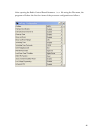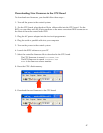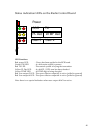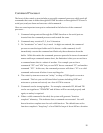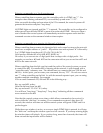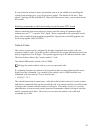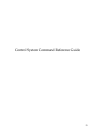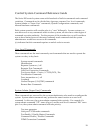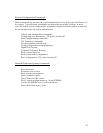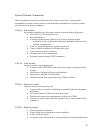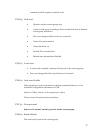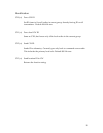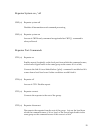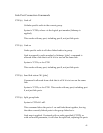
54
Control System Command Reference Guide
The Series 200 control system comes with hundreds of built-in commands and command
variations. Commands can be divided into 4 groups: common User Level commands,
System Admin or “Super User” commands, System Configuration commands, and
internal hardware commands.
Each system operation will consider who is a “user” differently. In
some systems, no
user has access to any commands while in other systems, all users have some degree of
command execution authority. For the purpose of this introduction, we will consider a
user to have limited access to the most commonly used commands and the system
administrator would have access to all commands.
(u) indicates that this command requires an unlock code to execute.
User Level Commands
These commands are the most commonly used commands that are used to operate the
system on a day to day basis.
System normal commands
Identification
Repeater System on / off
Repeater Port Commands
Link Port Connection Commands
Port Access Mode – Carrier / CTCSS/DCS / Etc.
Port Monitor Commands
Force transmitter on / off
Loopback
General Purpose I/O (GPIO) commands
Remote Base Commands
System Admin (Super User) Commands
These commands are reserved for the system administrator who need to reconfigure the
system. System admin commands may perform the same function as a user level
command. In this case, the system admin command takes priority. For example if a
system admin command “123” turns off port 1 and the user level command “456” turns
port 1 on, the system admin command will take priority.
Test tone generator
Link port CTCSS mode commands
Port Enable / Disable Master Comm
ands
Command Enable / Disable Commands
DTMF Generation Commands



